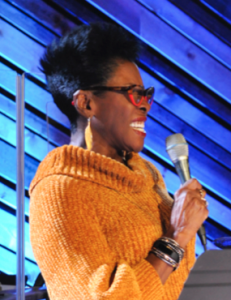Components of Musicality – Part 1
What makes a good musician? Is it just playing the right notes? Thankfully, no! There are so many dimensions to being a musician, and for the next few months we will explore them. What exactly is musicality? Musicality is a set of “inner skills” which let you freely and confidently express yourself in music. (from www.musical-u.com). Musicality is not a talent only special people are born with; it is a set of skills you can develop!
 The first aspect we’ll look at is Singing in Tune. This skill isn’t just for singers—check out this interesting definition of musicianship from the Associated Board of the Royal Schools of Music, which is the UK’s largest music education body and gives exams to musicians to assess their current level of knowledge and skill:
The first aspect we’ll look at is Singing in Tune. This skill isn’t just for singers—check out this interesting definition of musicianship from the Associated Board of the Royal Schools of Music, which is the UK’s largest music education body and gives exams to musicians to assess their current level of knowledge and skill:
“Musicianship is a broad concept that covers a complex range of musical abilities… it is loosely defined as the ability to ‘think in sound’. This occurs when a musician is able to produce music which they perceive internally and in the imagination, whether through playing by ear, singing, reading from notation, or through improvisation.”
 Think in sound! Can you think of the music you are going to play, without the instrument making the sounds for you? Can you imagine the song you’re about to sing, before it’s coming out of your mouth? I hear people say they are “tone deaf”, but true tone deafness is actually pretty rare! But you do need to practice:
Think in sound! Can you think of the music you are going to play, without the instrument making the sounds for you? Can you imagine the song you’re about to sing, before it’s coming out of your mouth? I hear people say they are “tone deaf”, but true tone deafness is actually pretty rare! But you do need to practice:
- Play two or three notes in a row on your instrument, or a piano or keyboard, then sing them back. Record yourself doing that exercise and listen closely to hear if you are hitting the pitches. Repeat this several times, listening closely each time to aim more accurately at the pitches. Sometimes we need to open up our ears and become more aware of the sounds we are making!
- After practicing with just a few pitches in a row, sing longer, but simple songs, like nursery rhythms. Record this as well—it’s much easier to hear how you actually sound when you’re not singing.
- Learn about Ear Training—this is developing your ears to hear music more accurately, and to know what you are hearing. You can do this with a teacher, a music class (I had to take four semesters of Ear Training in college!), or with online programs and apps.

This is just scratching the surface of singing in tune and ear training. If you’d liketo go deeper, we have excellent teachers who can help you along your musical journey! Have a wonderful February, and we’ll be back next month to discuss RHYTHM and it’s role in musicality!
Our teachers regularly perform in public and you’re always invited to come out to the shows!
It’s a lot of fun and we love to see a friend in the audience!
Ryan Head – Every Wednesday at Corvino Supper Club
Matt & Laura Lee Crandall, as 2/3 of the Americana trio Icarus Heart – Friday, February 9th 7:00—11:00pm at Jazz New Orleans Kitchen in Independence
Michael English, with the Ronni Ward Band – Saturday, February 10th 8:30 – 12:30 at Jake’s Place in Shawnee Mission
Karren Schiele – playing piano and leading choir, Sundays at Grace Baptist Church services at 10:50am
Laura Lee Crandall – drumming for Evangel Church services, Sunday February 18th, 9:00am & 10:45am
Matt Crandall – playing bass for Evangel Church services, Sunday February 25th, 9:00am & 10:45am
Michael English – playing guitar Sundays at Colonial Presbyterian Church at 10:45am
